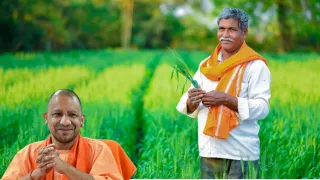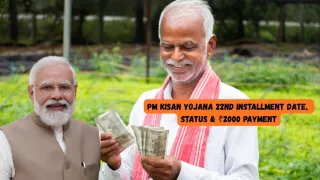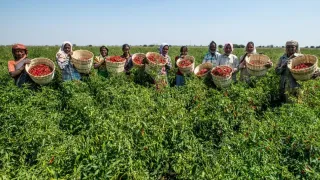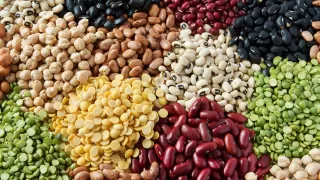Farmers Protest: Thousands of farmers from Punjab are trying to reach Delhi to protest. Farmer organizations of the state have called for Delhi Chalo. This protest is regarding the Minimum Support Price i.e. MSP. Along with MSP, farmers are also adamant on many other demands like implementing the Swaminathan Commission report, taking strict action on the Lakhimpur Kheri accident. Earlier on Monday late night, a meeting was held between central government ministers and farmer organizations in which many issues including MSP were discussed. However, the issue of guaranteeing minimum support price for crops got stuck. So let us know what is MSP and what are the farmers demanding regarding MSP?
What is MSP?
What is Minimum Support Price?: Minimum Support Price i.e. MSP is like a guarantee given to the farmers, in which it is decided at what price the farmers' crops will be sold in the market. Actually, the price of the crops is fixed during the sowing of the crop itself and it is not sold in the markets for less than the fixed price. After the MSP is fixed, even if the prices of crops fall in the market, the government buys crops from the farmers at the fixed price. In simple words, the objective of MSP is to protect farmers from losses amid fluctuations in crop prices.
What are the farmers demanding regarding MSP?
The protesting farmers marching from Punjab to Delhi are demanding that the Center bring a law guaranteeing minimum support price or MSP (Minimum Support Price). Before the Delhi march, a meeting was held between farmers and Union Ministers on 12 February but no consensus could be reached on the demands like ASP.Farmer leader Sarwan Singh Pandher said that their main three demands – guarantee of MSP, loan waiver of farmers and giving pension to farmers above 60 years of age – could not be agreed upon.
Which crops come under MSP?
The Central Government notifies MSP for 24 crops every year before the Kharif and Rabi seasons based on the recommendations of the Commission for Agricultural Costs and Prices. These crops include food grains like cereals, coarse grains and pulses. However, government procurement is largely limited to a few food grains such as paddy, wheat and to some extent pulses. Among these, the largest purchases are of rice and wheat.
There is MSP for 14 Kharif crops. These crops are paddy, jowar, bajra, ragi, maize, pigeon pea, moong, urad, groundnut, sunflower seeds, soybean, sesame, nigerseed (Ramtil) and cotton. Whereas MSP is given for 10 Rabi crops. These crops are wheat, barley, gram, lentils, mustard, safflower, rapeseed and other crops, copra, dehusked coconut and jute.
Procurement of food grains is largely concentrated in a few states. Madhya Pradesh, Punjab and Haryana, the three states that produce the most wheat in the country, purchase most of it. Whereas the six big rice producing states of Punjab, Telangana, Andhra Pradesh, Chhattisgarh, Odisha and Haryana have the majority share in the procurement.
Also Read: Why farmers protesting again, What are the farmers demands?
What has been the impact of MSP purchase?
As per the procurement policy of the Central Government, the objective of public procurement is to ensure that farmers get remunerative prices for their produce. If farmers get better prices than MSP, they can also sell their produce in the open market.MSP encourages farmers to grow crops that are purchased by the government. Since wheat and rice are the major food grains provided under PDS, these crops are purchased in large quantities. This is why crop production becomes more concentrated on wheat and paddy and farmers are not encouraged to produce other commodities like pulses. Moreover, this puts pressure on the water table as these crops consume more water.
Some state governments have taken some steps to encourage farmers to produce crops other than paddy and wheat. For example, Haryana started a scheme for MSP so that farmers can grow maize, millet, pulses or cotton. Under the scheme, the state government purchases the produce of various crops at MSP. Apart from Haryana, Madhya Pradesh has started giving MSP to farmers in rice, wheat and sugarcane and some other crops.





















